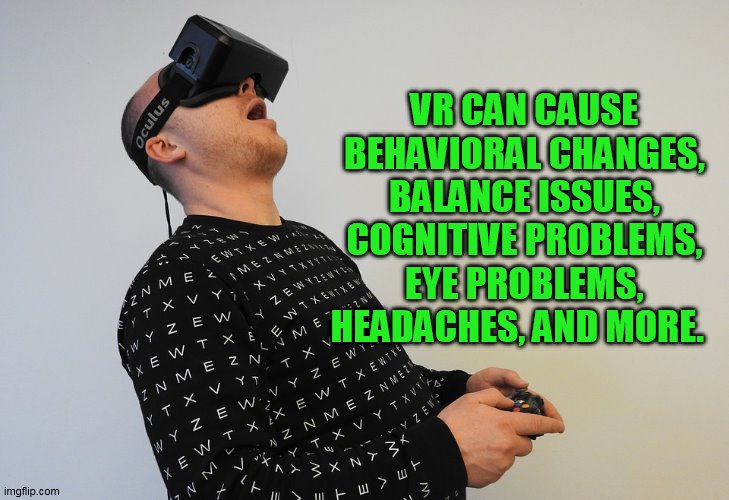 By B.N. Frank
By B.N. Frank
Meta may have lost billions on its virtual reality (VR) project and all kinds of significant liability, health, privacy, and safety risks have already been identified and reported numerous times in regard to VR use. Nevertheless, VR, augmented reality (AR), and mixed reality (MR) systems are still being promoted and utilized for recreational, educational and/or job training purposes (see 1, 2). Users particularly concerned about their privacy may be unnerved by the results of a new study. From Biometric Update:
New study reveals motion data can identify people in VR
A new study has revealed that the movements of an individual’s head and hands in a virtual reality (VR) application can identify them uniquely.
The study, led by graduate researcher Vivek Nair at the University of California Berkeley and conducted at the Center for Responsible Decentralized Intelligence (RDI), examined data collected from tens of thousands of users who use the VR application Beat Saber. Over the past few years, Beat Saber has become a widely popular VR rhythm game. In 2019, its developer, Beat Games, was acquired by Meta.
The findings show that many VR users can be uniquely identified across multiple sessions using their head and hand motion relative to virtual objects. With 5 minutes of data per person, the user can be uniquely identified with 94.33 percent accuracy from 100 seconds of motion and 73.20 percent accuracy from 10 seconds of movement, demonstrating the extent to which biomechanics can act as a unique identifier in VR, comparable to more widely used biometric modalities such as facial and fingerprint recognition.
“This work is the first to truly demonstrate the extent to which biomechanics may serve as a unique identifier in VR, on par with widely used biometrics such as facial or fingerprint recognition,” states Kavya Pearlman, the founder and CEO of the XR Safety Initiative, a non-profit that promotes privacy, security, ethics and develop standards for Virtual and Augmented Reality.
The study has implications for the security and privacy of virtual reality applications, which rely heavily on simple motion or telemetry data. The data collected from these platforms could reveal sensitive information about users. For example, the information can potentially identify people and lead to a whole new type of privacy violation.
The researchers also explored general applications of their findings for VR gaming, including advanced cheating detection, score prediction, skill-based matchmaking and map recommendation engines. Going forward, the researchers believe developing defensive technologies that can protect user privacy while preserving VR applications’ utility will be essential.
“Moving around in a virtual world while streaming basic motion data would be like browsing the internet while sharing your fingerprints with every website you visit, explains the study’s lead researcher, Vivek Nair, via VentureBeat. “However, unlike web-browsing, which does not require anyone to share their fingerprints, the streaming of motion data is a fundamental part of how the metaverse currently works.”
Activist Post is Google-Free
Support us for just $1 per month at Patreon or SubscribeStar
Activist Post reports regularly about AR, MR, VR, and other unsafe technologies. For more information, visit our archives and the following websites:
- Environmental Health Trust
- Electromagnetic Radiation Safety
- Physicians for Safe Technology
- Wireless Information Network
Become a Patron!
Or support us at SubscribeStar
Donate cryptocurrency HERE
Subscribe to Activist Post for truth, peace, and freedom news. Follow us on SoMee, Telegram, HIVE, Flote, Minds, MeWe, Twitter, Gab, What Really Happened and GETTR.
Provide, Protect and Profit from what’s coming! Get a free issue of Counter Markets today.


Be the first to comment on "VR Apps Have the Ability to “uniquely” Identify Users which “could reveal sensitive information” About Them (Study)"